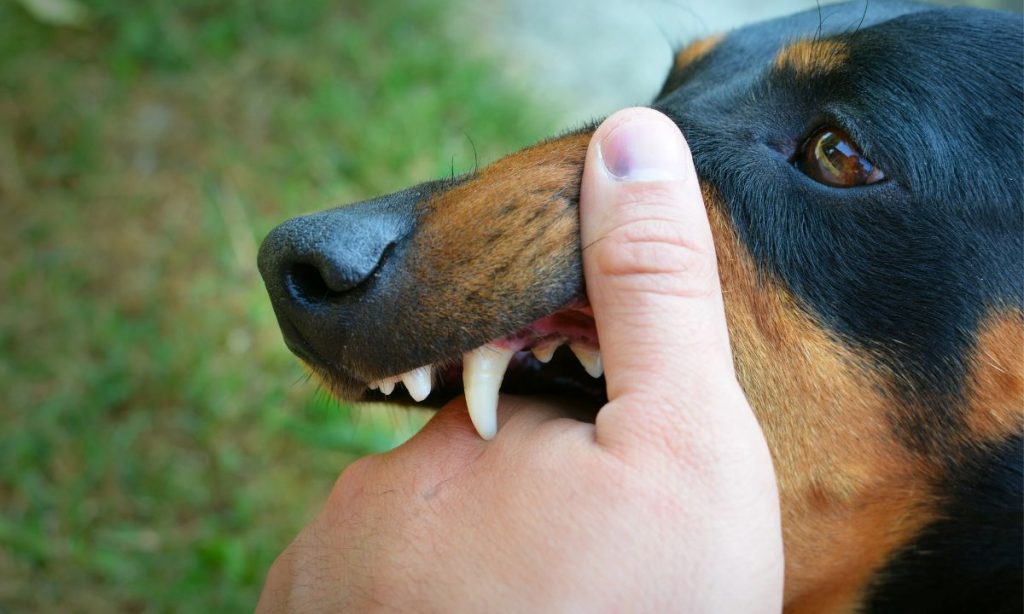Last Updated on April 28, 2022 by Dogs Vets
How Long do Miniature Schnauzer Dogs Live?
If you’re considering getting a Miniature Schnauzer puppy, you may be wondering about its life expectancy.
Fortunately, there are many ways to increase your dog’s life expectancy. The following tips will help you determine the life span of your new puppy.
Proper diet and exercise are key to an extended life span, but it’s also important to keep your dog clean.
How long do Miniature Schnauzers live?
The Miniature Schnauzer is a medium dog breed that originated in Germany during the mid-late 19th century. The breed’s lifespan is typically between 7 and 11 years, but they can live longer than these estimates.

The breed is also quite affectionate, and it’s common for them to show it. If you’re wondering how long a Miniature Schnauzer will live, read on for some fascinating facts!
The life expectancy of a Miniature Schnauzer varies depending on the health and age of the dog. They can live up to 14 years of age if taken care of properly.
They have low-shedding levels, which makes them hypoallergenic, and therefore produce fewer allergens. Because Miniature Schnauzers are hypoallergenic, you can expect your dog to live longer.
Miniature Schnauzers are also hypoallergenic, which means they have fewer allergens than most other dogs. Dogs’ hair, saliva, and skin contain proteins that can cause allergic reactions.
Aside from these conditions, Miniature Schnauzers can also develop certain conditions. Some common health issues include progressive retinal atrophy, cushing’s disease, and cataracts.
Miniature Schnauzers are also susceptible to several types of heart disease, including pulmonic stenosis and mitral valve disease. As with any dog, proper diet and exercise are vital to their overall health.
Your Miniature Schnauzer’s Health
Getting your Miniature Schnauzer checked for eye problems is crucial to the well-being of your pet. Your miniature schnauzer is prone to eye conditions, including glaucoma, cataracts, and eye ulcers.
Senior dogs are more prone to developing cataracts, which can occur in either or both eyes and lead to partial blindness. Cataracts are removed by a veterinarian.
A diagnosis of bloat should be made immediately, as any delay can lead to the animal deteriorating into shock.
Fortunately, most bloat cases can be treated with an antibiotic treatment before they progress to emergency surgery.

However, if your Miniature Schnauzer develops a bacterial infection, it’s important to get it checked out immediately. Blood in the urine is an emergency.
The best course of action is to take your dog to a veterinary clinic immediately. Your Miniature Schnauzer may have pancreatitis, which requires hospitalization and intravenous fluids.
Whether your Miniature Schnauzer has a chronic illness or an acute incident, regular checkups are essential.
You should establish a good relationship with your vet and develop a rapport with them. Your Miniature Schnauzer will require routine checkups to prevent any problems that may arise in the future. Your veterinarian will likely run DNA and eye exams.
If you are worried about your Miniature Schnauzer’s health, he or she can recommend a routine exam.
General Health Information for your Miniature Schnauzer
Heart disease is the number one killer of a Miniature Schnauzer in its golden years. It is typically the result of a weakening of the heart valves, allowing blood to leak around them and strain the heart.
A heart murmur is a common symptom of a dog suffering from heart valve disease. Your vet may also perform tests to monitor the severity of the disease.
Your Miniature Schnauzer’s pancreas produces digestive enzymes and insulin. Unfortunately, this organ is susceptible to inflammation.
When your dog develops pancreatitis, he or she may display diarrhea, vomiting, dehydration, and fever. If not treated immediately, the condition can progress to diabetes or worsen the symptoms. Pancreatitis often requires hospitalization and intensive care.
Dogs should also be kept away from processed foods and treats, as these contain artificial ingredients.
In addition to eye problems, Miniature Schnauzers are prone to several eye diseases. Some of these diseases may be permanent, while others can be temporary.
It is essential to understand what symptoms indicate a condition and when to consult a veterinarian.
Different diseases have characteristic combinations of symptoms, and when to seek veterinary care should be considered immediately. However, even if the symptoms are temporary, they can signal the need for treatment.
Miniature Schnauzers Genetic Predispositions
When considering your Miniature Schnauzer’s future, there are many things you should consider. While some health issues are preventable, others are hereditary.
The following list is a guide to the potential health problems. You should understand that this breed is prone to epilepsy.
Your veterinarian can recommend appropriate treatment based on your pet’s individual risk factors.
The biggest concern for Miniature Schnauzers is their high incidence of liver disease and portosystemic shunts. This condition, which requires expensive surgery, affects up to one percent of the breed.
Miniature Schnauzers are also prone to a genetic disorder called myotonia, which affects the muscles of the legs and torso.
Puppies with this condition have difficulty walking or getting up. Their jaws and tongues may be enlarged. The disease can also lead to digestive problems.
For example, one study looked at the median life span of a Miniature Schnauzer. It found that male Miniature Schnauzers lived longer than females.
In addition, there were no gender differences in life span. However, true estimates of longevity in this breed require a cohort study design. That kind of research would be extremely difficult to implement.
A recent study looked at the population of dogs with HS and found that miniature schnauzers were over-represented in HS cases.
In addition, one dog from a related litter was found to be predisposed to HS. These results suggest that HS is hereditary and not a result of genetic mutations in these dogs.
How to Increase Miniature Schnauzer Life Expectancy
While Miniature Schnauzers are generally healthy, they do have a few health concerns you should be aware of. These can include cataracts, urinary stones, pancreatitis, hyperlipidemia, or high levels of cholesterol or triglycerides in the blood.
To help improve your Miniature Schnauzer’s life expectancy, be sure to take your pup to the vet regularly to have him, or her tested for these conditions.

During this time, the veterinarian may also run eye exams and DNA tests to rule out other conditions.
As with any dog, the Mini Schnauzer needs a regular routine of exercise and mental stimulation. Just like toddlers, you should supervise your pet and close doors when they are inside. Make sure to pick up after your dog and block off rooms as needed.
Brush your dog’s fur weekly and have it professionally groomed twice a year.
In addition, make sure to brush your dog’s teeth at least three times per week.
Sick sinus syndrome is a common problem for Miniature Schnauzers. This condition affects the sinus node, which is part of the electrical system that signals the heart to beat.
When your Mini Schnauzer develops this condition, their heart rate will drop, and they may even faint.
In mild cases, treatment may be based on medication, but severe cases may require surgical removal. To improve your Miniature Schnauzer’s life expectancy, you should take your dog to the veterinarian for a heart exam.
Taking Care of Your Miniature Schnauzer at Home
Taking care of a Miniature Schnauzer at home requires consistent attention. They are energetic and need undivided attention. However, they are also great pets.
Here are a few tips for caring for your puppy.
First, avoid introducing a new environment or people to your pup. Your Miniature Schnauzer should have a comfortable place to relieve itself.
Second, make sure your Miniature Schnauzer has the proper vaccinations and daily exercise. Your dog’s physical condition will determine how much exercise it needs.
Consult your vet about this. If possible, take your Miniature Schnauzer to the dog park. Lastly, brush your Mini Schnauzer’s teeth three times a week. Brushing is essential, especially if your Mini has a dry, matted coat.
Another thing to keep in mind when caring for your Mini Schnauzer at home is the occurrence of certain medical problems.
If you notice a recurring bout of diarrhea, vomiting, or weight loss, it is best to visit your vet. Some of these conditions are inherited and begin in early childhood.
If you suspect your Mini Schnauzer has bladder stones, make sure to contact your veterinarian immediately. Often, these small stones will pass on their own.
In this case, you may want to make some dietary changes to prevent future stones from forming.
A daily inspection of your miniature schnauzer’s coat for fleas and ticks is crucial for your dog’s health.
Check the coat for any fleas or ticks using a flea comb. If you find any, consult your veterinarian for the best treatment.
In addition to daily inspections, it’s important to provide your pet with fresh water. If you like to provide your puppy with the best possible life, you should make sure he has a healthy diet.
Facts Check
We hope you enjoyed this article… What are your thoughts?
Рleаse feel free to share with us in the comments section below!

















